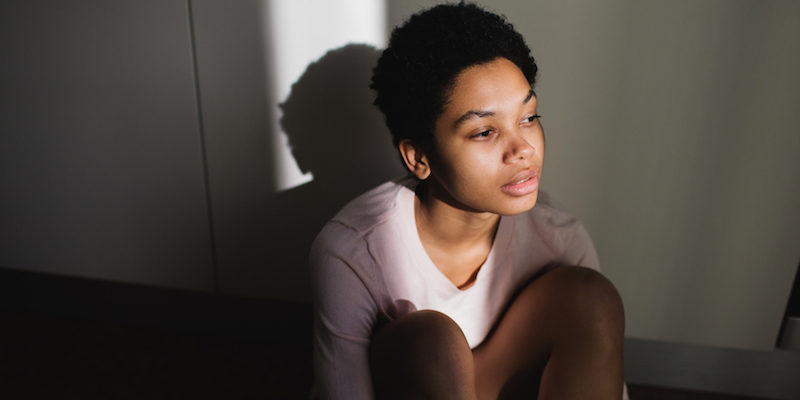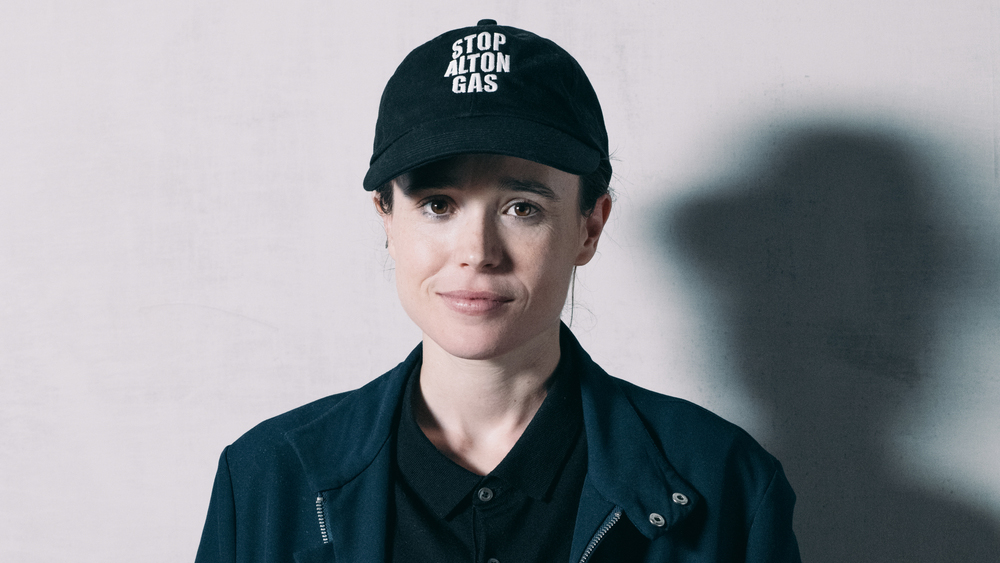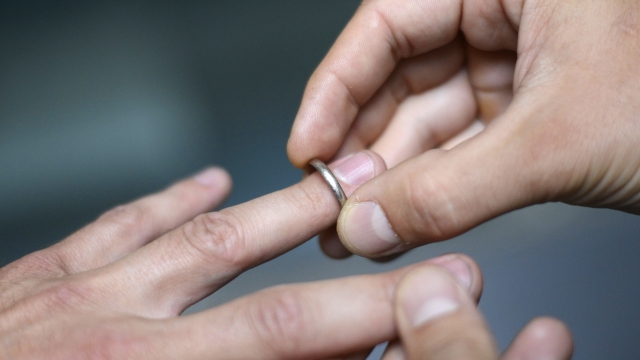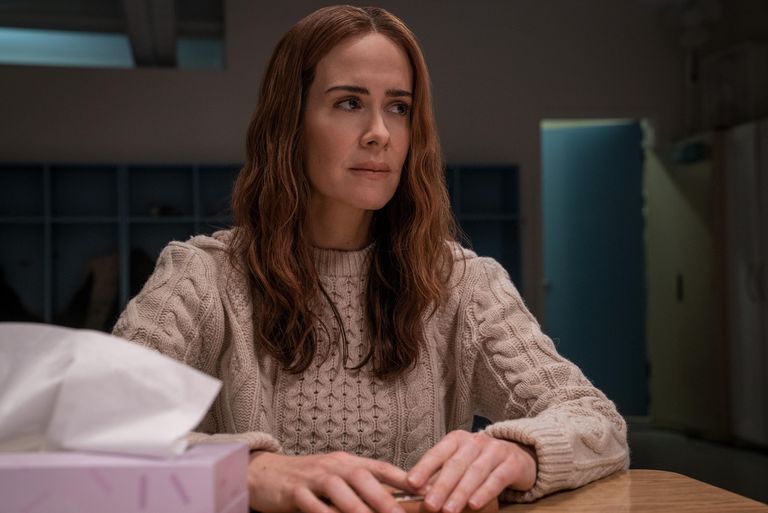Insecurities are a bitch. Even the most confident women I know have something they don’t want to talk about – and, for many of us, that includes topics of a sexual nature.
Some of us were taught at a young age that female sexuality isn’t up for discussion, and once you throw in a woman having sex with a woman…
Well, it’s easy to see how our perceptions of sex may have been formed at a younger age than we give ourselves credit for.
Realistically, even of the “legitimate” insecurities to have, there are usually solutions that are so much easier on you than continuing to worry.
I’m not saying you shouldn’t be cautious and calculated. But there are already so many other things to stress and worry about – here are 12 sexual insecurities you absolutely don’t need in your life.
Insecurity #1: “I’m not going to orgasm.”
Believe it or not, 10-15% of women aren’t able to orgasm… at all. Another 60% can’t orgasm through vaginal penetration, which tends to be one of the most common types of sexual activity – even among the lesbian community.
Of women who can orgasm, at least some of the time, you’ve got to factor in the different sexual preferences, and evaluate whether you’ve tried everything.
For most couples (whether romantic or strictly sexual), all that’s necessary to try something new is for one partner to ask the other. Don’t be afraid to switch things up, and see if you’re going to orgasm this new way!
When in doubt, though – understand that orgasm doesn’t have to be the goal of sexual intimacy. There isn’t a single thing wrong with not orgasming – it’s completely normal and doesn’t have any apparent medical causes.
As long as you’re having a good time, your sex life is doing just fine. Just don’t forget to be honest when you’re communicating this to your partner.
Insecurity #2: “My vagina stinks.”
Believe it or not, “vaginal odor” is an incredibly common search term in major search engines. If you’re wondering if your personal smell right now is “normal”, here’s what the most common smells searched were:
- Fish
- Vinegar
- Onions
- Ammonia
- Garlic
- Cheese
- Body odor
- Urine
- Bread
- Bleach
- Feces
- Sweat
- Metal
- Dirty feet
- Garbage
- Rotten meat
Now, some of these things are obviously unpleasant smells – and women may go off in search of scented sprays, douches, and soaps to make that area smell better. The problem is that washing this bacteria-sensitive area can actually make smells worse.
That’s because the inside of the vagina is designed to clean itself – it doesn’t need your help. If you get in there and try to do the bacteria’s job, you’re going to kill the helpful bacteria, and it’s not going to keep it fresh down there.
It’s also important to realize that you really can’t change the way your vagina smells (or tastes) with any magical recipe. It’s going to smell, and taste, like a vagina – and chances are, your partner doesn’t mind.
If it’s something you’re insecure about, you’re naturally going to smell yourself more than someone who’s not concerned with it will. I think that’s a cruel joke played on us by the universe, but there’s really nothing you can do to make it smell better, besides keep it clean and avoid infections.
Insecurity #3: “My boobs are too big/small/uneven.”
Most women have at least occasional insecurities about their breasts. For women with large, perky breasts (especially in the butch lesbian community) a reduction or binding can be a strong call.
For women whose breasts are on the smaller side, the impulse can mean looking into breast implants. While these are all valid choices you can make about your body, many may struggle with insecurities when they’re not willing (or able) to go under the knife.
As with other aspects of your body image, your perception of your breast size (and even lopsidedness) is not as much about your body as it is your reaction to your body.
In order to overcome this physical insecurity, you’ll need to learn how to accept your body as it is, and – ideally – learn to love it. After all, no one else has to live with your body but you. If you think you’d actually be happier with bigger or smaller breasts, go for it. But if your perception is based on the opinions of unrelated people – even if you have feelings for them – it’s best to let the insecurities go.
Insecurity #4: “We don’t have sex as often as we used to.”
Believe it or not, sexless relationships are another common search term, for both men and women. Most of the time, it comes from your state of perception.
Once you see each other every day, it seems like you’re having sex a lower percentage of the time.
Once your life starts to get busy, your sex life will probably slow down even more. That doesn’t mean that you’re headed for a rut, though – you’re not programmed to want sex all the time.
Often, when we first start the sexual part of a relationship, there’s a lot of built-up tension. Unless the relationship started from a sexual beginning, you probably haven’t had sex since your last serious partner. Since it’s been a while, your body craves to catch up, so you have sex all the time.
At some point, your sex hormones get all caught up, and you don’t “need” sex anymore. What’s more, now that the two of you have your own smaller, separate sex schedules, the times that you’re aroused at the same time she’s aroused have diminished.
The good news is that you can still enjoy sexual activity with one another if you don’t start off aroused – although it will take a little more work to get it going.
If your sex life in a long-term relationship is important to you, don’t worry. You can bring it back. Most likely, it’ll bring itself back if you give it enough time, but I understand why you might want to rush it along. Be patient, and communicate with your partner about it – this is going to take both of you to work out a solution.
Insecurity #5: “I don’t look good naked.”
In general, people look weird naked. We’ve got round parts, straight parts, dangly parts, inward-facing parts, wet parts, dry parts… If you think about it, we’re composed of a bunch of different mismatched parts, and that makes us all a little mismatched.
If only it was actually that easy to change our feelings about ourselves. In a practical sense, most of us have built up habits in our thought process that makes it difficult to see ourselves as attractive. For those who do find themselves attractive, it’s often labeled as narcissism or self-centeredness.
We shouldn’t be hating on ourselves, though – and we shouldn’t allow people in our lives who make us feel bad about our bodies.
If there’s something you can change, and you want to change it, do it – once you get started, the rest will come easy. If the thing you’re unhappy with is something you can’t change, you’ll need to learn how to love it – or, at least, tolerate it so you’re not miserable.
Unfortunately, body image issues are one of the leading killers of a sex drive. An estimated 61% of women think about how their body looks to their partner during sex – during sex – which is an obvious mood-killer.
Instead of trying to push yourself for sex when you’re not feeling up for it, do something that does make you feel sexy – and if it leads to sex, it leads to sex. A good partner will understand if you’d rather not get it on tonight, and will patiently wait until you’re in the right frame of mind. (Or, ideally, she’ll help put you there!)
Insecurity #6: “My vagina is weird.”
One of the leading ways that the porn industry has damaged the sexual health of the average woman is through the stereotyping of what makes an attractive vulva (often mistakenly referred to as a vagina).
In some cases, women even undergo serious surgery to “correct” their labia – all because of the porn industry. We see images of shaven women with small labia, and we associate that ours need to look like that, too.
But the human body is unique, and there’s no such thing as a good or bad vagina. Even with expensive (and risky!) surgery, there will never be two identical vaginas, or vulvas, and just because your “type” isn’t shown in porn doesn’t mean there’s anything wrong with it.
The people who would judge you for something as inconsequential as the shape of your labia is really, really not worth having in your life, and definitely not worthy of getting inside your underwear.
Insecurity #7: “What if I’m not good in bed?”
It’s been said that sex is like pizza – even when it’s bad, it’s still pretty good. The only problem is that there really isn’t even such a thing as bad sex – it’s all about personal preferences.
Something that gets my heart racing and my panties a little wet might make you sick to your stomach, and I’d bet the opposite is also true. Sex is all about knowing what you want, and finding a partner who’s willing to give it to you.
That’s not to say that some people aren’t better than others, though, and in those cases, it generally comes down to practice and enthusiasm.
If you’re not really in it, and not willing to work on your connection with your partner, you’re not going to be any good. Over time, you’ll learn how to get better – but it’s not going to fix the problem for you. I still recommend you try, and make sure you’re communicating with your partner.
Insecurity #8: “My sex life will eventually get boring.”
For many people, the idea of having sex with one single person for the rest of your life sounds like a chore. Movies and television warn of wandering eyes and huge dry spells, and we fear that’s what’s in our future.
Add in the possibilities of the other partner being emotionally unattached or unfaithful, and the pure uncertainty of the future, and it’s not hard to imagine why so many are afraid of commitment.
Believe it or not, men and women in serious long-term relationships (such as marriage) actually reported greater sexual satisfaction, on average, than their non-married peers.
While the couple may not be having sex as frequently, they’re generally enjoying it more – because their partner knows exactly what they like, and there is an unspoken bond that helps guide things to perfection.
Insecurity #9: “I want sex too much/not enough.”
If you want sex more or less than your partner does, it’s highly common to feel as if there’s something wrong with you – especially if you’ve had similar problems with some (or all) of your exes.
While we know that our sex drive is controlled by tons of external factors, we can’t help but feel guilty if it doesn’t align perfectly with our partner’s. The great news is that sex isn’t the only solution to that problem – the partner with greater desire should be free to relieve additional sexual energies by herself, if needed.
In some cases, an open relationship may be just the right answer, but it will require a tremendous amount of trust and respect between the partners.
Sometimes, though, there’s just no way to make your sex drive work with your partner’s. If you don’t think your sex drive differences are temporary, and you don’t feel that you can compromise on them, there’s not a problem with either one of you – it’s just that the two of you aren’t compatible with one another.
I generally advise not to build relationships purely around sex, to lower the risk of this situation popping up, but I’d be lying if I said I’d never done it.
Insecurity #10: “I’ve been with too many/not enough people.”
The number of sexual partners you’ve had is nothing to be ashamed of – even if that number is really high or really low.
Sexual activity is so much more complicated of an issue than pure biology, so the number of people you hoped you’d have sex with vs. the number of people you have had sex with isn’t likely to be too similar.
In fact, most of the time, your opinion of how many sexual partners you “should” have had by now is usually not formed until after you’ve decided that your current count is somehow “wrong”.
Women go through life at different speeds, and we have different priorities in life. It’s important to realize that applies to sex, too. While some women make it through their entire lives and only have one kind of sex with one person, other people may be into the double digits before they’ve turned 20. As long as you’re being safe and cautious, no one has the right to tell you that you’re doing things wrong.
Insecurity #11: “Getting an STD is going to ruin my sex life.”
Finding out that you have an STD is never pleasant news, and in many cases, you’re told to refrain from sex until after the infection has gone away (for acute diseases such as chlamydia).
Thankfully, some of the stigmas surrounding sexually transmitted diseases are starting to clear up, and we’re becoming a society more willing to talk about these things.
For the sake of preventing unnecessary infection, it’s important that you talk to your partner(s) about any risk for STDs, and get tested together before you stop using protection.
If you’ve come down with something chronic, the news can be devastating – we’re taught that lifelong STDs are something to fear and avoid at all costs. Okay, once you get a positive diagnosis, it’s a little late for that. Thankfully, with proper protection and communication, it’s possible to have a happy sex life even with genital herpes or HPV.
Additionally, there are dating sites specifically for people with a positive diagnosis – try Positive Singles, which allows you to match with other singles who also test positive for the disease(s) you’ve been diagnosed with, to prevent further spreading.
Insecurity #12: “I fantasize about things I would never actually do.”
Of all the things you could be insecure about, your desires and fantasies should not be anywhere on that list. First, arousal doesn’t necessarily have anything to do with desire – as evidenced by the instances of rape cases where the victim reached climax.
There was actually an interesting study done to help prove that your body’s physical arousal response was not necessarily an indicator in determining your actual sexual arousal. For more information about that study, check this summary.
Beyond just the strange fantasies that we don’t necessarily want, there are also safe ways to act out fantasies, if you do decide you want to pursue them.
These fantasies aren’t always literal representations, so the person who finds themselves having fantasies of having sex in a movie theater might be just as happy having sex in their own back yard.
There’s no shame in experimenting with your sexuality, and experimenting with the ways you express your sexuality.
As long as your partner is of legal, consenting age, human, and willing to participate, everything is fair game.










One thought on “12 Sexual Insecurities We All Have (And How to Get Over Them)”
Pingback: 18 Signs You’re In A Healthy Sexual Relationship | KitschMix